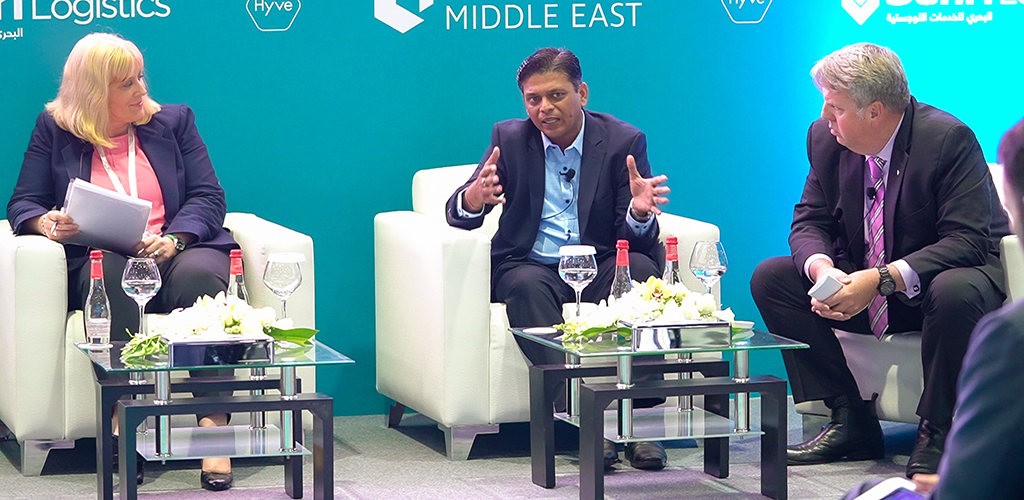Mar 31 | 2020
(MENA) Breakbulk Middle East Panel Discusses Covid-19

The “Game Changers” title of a Breakbulk Middle East conference session was eerily prescient. As the event took place in late February, the Covid-19 pandemic had just started to spread beyond its Wuhan origins. As those on the panel discussed the impact of Covid-19, signs were starting to emerge that the virus was truly set to be a global game changer for the breakbulk industry.
Panelist Eliska Mundell, cargo sales manager for Emirates Airlines, explained that at the time of the session airlines had already been hard hit. With Emirates Airline usually running 26 flights a week out of Hong Kong, the impacts of factory closures hit them hard.
“We have a very big network, and what’s already a difficult market is not looking particularly good,” she said. Mundell did concede that if there was a backlog to move after the crisis passed there could be a welcome boost for breakbulk air freight.
As an automobile carrier, Höegh Autoliners also felt the impacts of Covid-19 early on. Finn Roden, head of sales (Middle East), said that forecasts from original equipment manufacturers around Southeast Asia fast became completely skewed because of the movement of parts. “The source of supply for a lot of things might have to change. This is going to change a lot of things for the ocean supply chain,” Roden said.
Steffan Behrens, country manager for deugro Emirates, reported seeing a scarcity of equipment, and worked hard early on to explain the problems to clients. “On the logistics level our clients understand,” he said. However, on the project level they were not as willing to understand. “I think we will see more and more contracts going into force majeure because there is no clear way to go,” Behrens said.
Direct Dealing Risks
On the subject of contracting directly with asset owners, the panel agreed that there were some benefits. Roden said that Höegh Autoliners has direct contracts with OEMs around the world, and has found that with certain projects that fit its vessels, there are benefits to operating directly with the EPC. “We feel we can add a lot of value as a liner/ro-ro carrier by going directly to the EPC.”
Mundell said Emirates Airlines had been approached directly by engineering, procurement and construction companies to get a better understanding of limitations, but not to contract directly. “It’s in their benefit to work as a tripartite,” she said. “The EPC gets the clarity that they want and understands the standards.” There are, she added, risks to going direct. “We need freight forwarders’ knowledge and expertise,” Mundell said. “How are all the risks going to be managed?”
Dharmendra Gangrade, head of logistics at L&T Hydrocarbon Engineering, explained that his company experimented with going directly to carriers some years back. As a result of that experiment, the EPC found that the freight forwarder brings many solutions. “Having that flexibility is critical,” he said, adding that he sees the trend of going direct to asset owners coming to an end.
“The risk of going direct is huge. Why would we increase risk? The freight forwarder does the end-to-end job better, whereas the carrier only does the port-to-port job,” he said.
Subscribe to BreakbulkONE and receive more industry stories and updates around impact of COVID-19.
